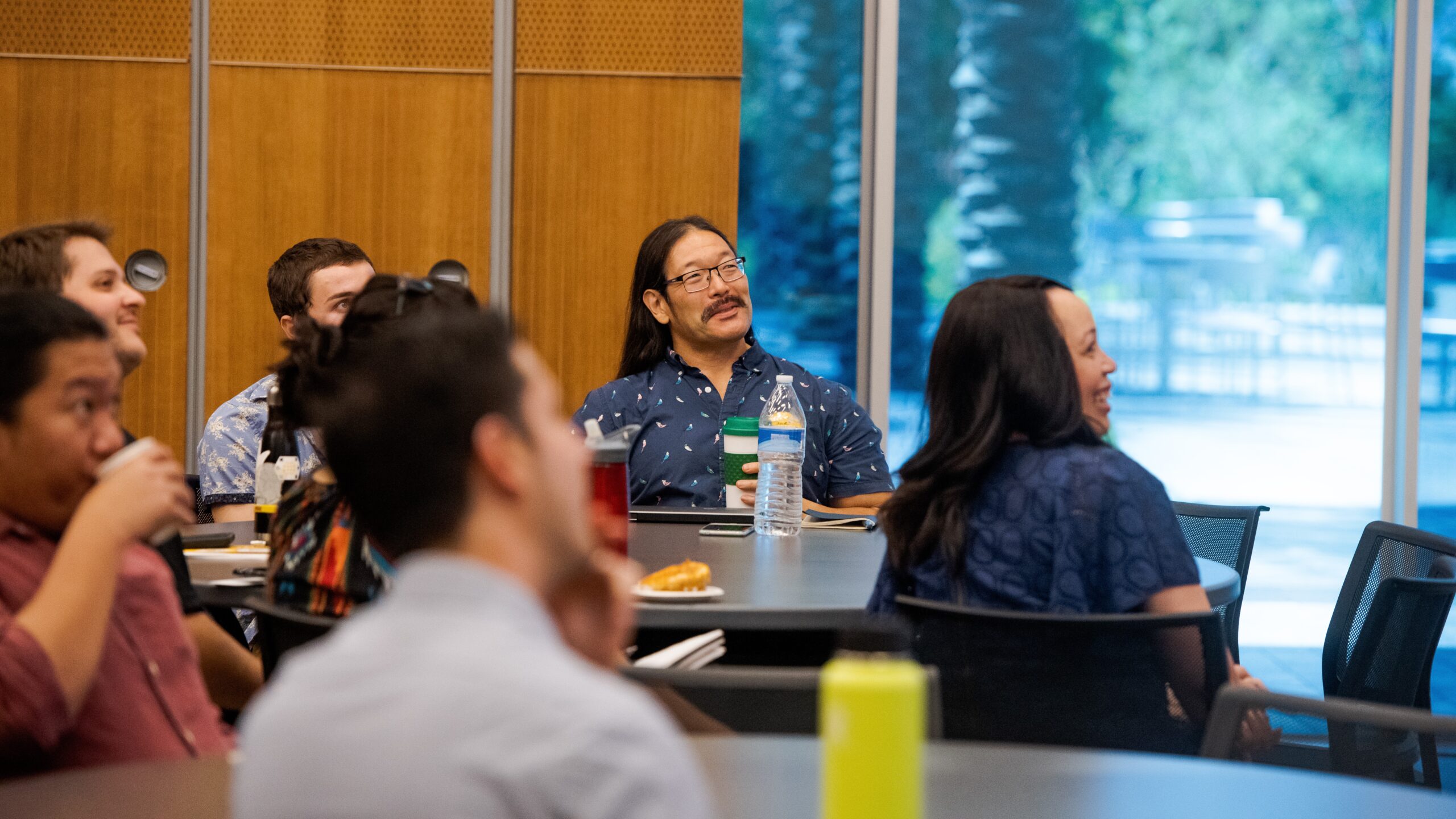
Communities of Practice
Opportunities
Create your own COP
Interested in joining a community of practice or forming one with support from the Learning and Teaching Hub? Email us at [email protected].
Our communities of practice provide personalized applied learning opportunities related to specific topics. Communities of practice meet virtually every month, with in-person opportunities provided through social and networking events.
Learning Communities
Led by Eric Bishop and Andrew Salcido
In alignment with ASU’s commitment to access and student success, this Community of Practice focuses on the continued implementation and growth of learning communities across a range of instructional formats. Through collaborative partnerships among students, faculty, and staff, the group seeks to address structural barriers, promote equity, and strengthen a shared sense of belonging through intentional course and program design.
Participants will engage with examples of current initiatives, explore lessons learned from recent implementations, and discuss strategies for scaling and sustaining learning communities across disciplines. The session will provide practical tools, frameworks, and adaptable approaches that educators can apply to create inclusive, engaging, and supportive environments for all learners.
Meaningful Learning with Multimedia
Led by Dhruv Bhate and Nick Lindquist
Multimedia has the potential to create meaningful and engaging experiences, but how can we design and deliver content that truly enhances student learning? This Community of Practice explores the development and implementation of multimedia content that supports and complements hands-on learning. Participants will engage in collaborative discussions, share best practices, and explore tools and techniques for multimedia design and integration in engineering courses
Learning for All: Practices that Support Student Success
Led by Christina Carrasquilla and Stefani Jenkins
We all want our students to have the support and opportunities they need to reach their full potential, but figuring out the “how” can be challenging. This session is designed as a collaborative workshop and open discussion where faculty can share ideas, problem-solve together, and explore practical ways to help all students succeed. Participants will also get to see strategies in action from a current engineering faculty member, offering real examples of what’s working in the classroom. The goal is to walk away with ideas and approaches that make it easier for every learner to build a strong foundation for success in engineering.
Mastery-Based Learning
Led by Keith Hjelmstad and Medha Dalal
Mastery-based learning is traditionally viewed as a system wherein students move on to the next topic only upon demonstrating mastery of the previous one, often in an asynchronous format. However, in a university setting with fixed semesters, how can we leverage the benefits of mastery-based learning? Last year, we launched a faculty Community of Practice focused on Mastery-Based Learning (MBL) to explore how we might apply mastery-based assessment strategies with principles of transparency, and student success. This year, we’re building on that foundation. Faculty will share what they’ve implemented in their courses, reflect on what worked (and what didn’t), and collaboratively address the challenges of putting MBL into practice.
Scalable Classroom Assessments in Large Enrollments (SCALE)
Led by Ryan Meuth and Jon Baek
In large-enrollment courses, it can be a challenge to provide students with the formative feedback and resources they need to succeed in a timely manner.
This community of practice will guide you to build in automation and use AI to provide the feedback you have always wished you could give, but never had the time to. This Fall semester, we’ll build a tool together that will allow you to personalize a message to your students based on their course performance. This could open doors to other impactful instructional opportunities! We welcome all experience levels, and no prior programming knowledge is needed!
Generative AI in Teaching and Learning
Led by Nadia Kellam, Sue Huffman and Jon Baek
Have you ever wondered how students are actually using generative AI in their courses- and how they should be using it? Whether you’re new to AI tools or already experimenting with them, this community of practice is open to all instructors curious about the evolving role of AI in teaching and learning. Together, we’ll explore how to create classroom environments that support ethical, critical, and thoughtful use of generative AI
Our work will be hands-on and learner-centered: participants will unpack real assignments, map how students might approach them with AI, and develop strategies that integrate AI productively, such as assignments and in-class activities. We’ll highlight tools currently available to ASU students and faculty (e.g., ChatGPT, Gemini, Notebook LM) and underscore that genAI does not replace faculty or student expertise–it amplifies it. Through modeling, think-alouds, and intentional design, we will help students use AI responsibly and creatively, developing not only skills with these tools but the deeper habits of mind required of future engineers, creators, and innovators.
LTH Book Study
Led by Marnie Wong, Medha Dalal and Stefani Jenkins
Expand your teaching toolkit by reading and discussing teaching and learning through our professional book study! Every semester, LTH hosts a 3-part, virtual book study with a teaching book-of-choice from the community. Book copies are made available to those interested and through the ASU library.
Cohort of Newly-hired Educators (CORE)
Led by Stefani Jenkins and Jon Baek
Cohort of Recently Hired Educators (CORE) is a hands-on community of practice designed exclusively for new engineering faculty at Arizona State University. CORE offers a dynamic workshop-style environment where participants actively engage in monthly sessions on key topics like active learning strategies, student motivation, and effective assessment techniques. Faculty will leave each session with actionable strategies and ready-to-implement ideas tailored to their classrooms.
CORE meets virtually twice a month throughout the academic year. Explore the 2025-2026 academic calendar flyer for more details.